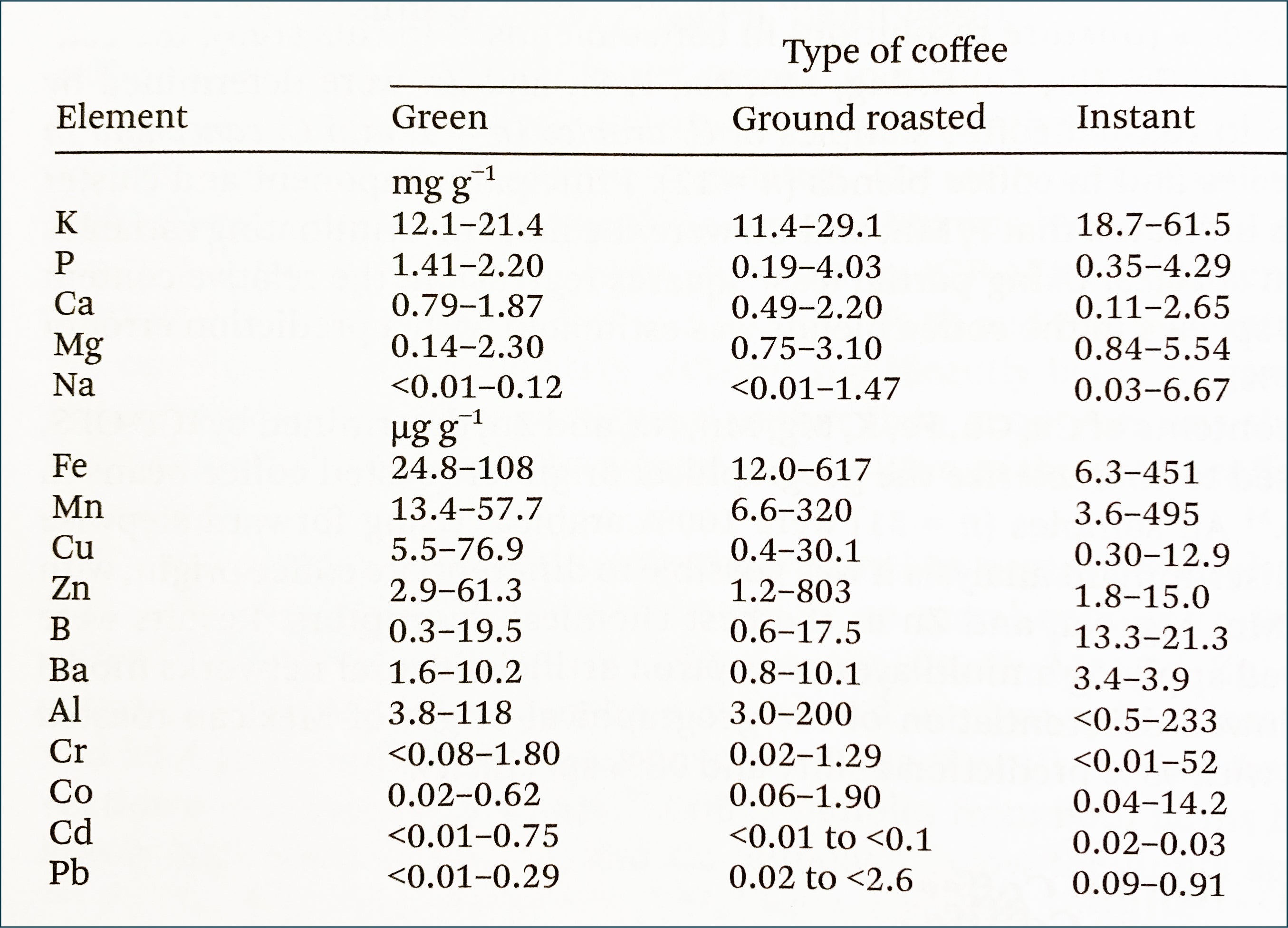Although the mineral content in coffee is only considered to be about 5%, numerous elements that affect the oxidative status may enhance their importance. Oxidative status is simply a fancy scientific term used to describe the number of pro-oxidants and antioxidants present in our cells and cell tissue. What this effectively means is that the relatively modest mineral composition of coffee is magnified (has a greater impact in the body) by reactions of other elements within the coffee bean.
Why are minerals important?
Minerals are natural substances that are present in nature. From a nutritional standpoint, minerals are inorganic substances that our bodies need in order to carry our important functions. There are many minerals that the human body has and needs (essential minerals), with some of the most notable ones being calcium, copper, sulphur, phosphorus and magnesium, but many more exist and are essential for our bodies.
We already know that coffee is packed with antioxidant properties but coffee can also positively towards our mineral intake with each cup of fresh coffee. Of course, the lighter the roast, the more the coffee bean retains its natural properties.
The Science
Mineral elements are naturally occurring in coffee beans and begin to form during the coffee fruit formation. The minerals are made up mainly of essential nutrients (e.g. P, K, Mg, S, Ca, Fe, Zn, Cu, B) but also non-essential and also a small amount of toxic contaminants (e.g. Pb, Cd, Al, Sb). The precise mineral composition of a coffee bean depends on multiple factors such as its geographical location, altitude and environmental growing conditions. Practically, for the coffee drinker, even the type of preparation (brewing method) can affect the mineral content of the cup.
In a recent study using atomic absorption spectrometry it was shown that coffees originating from South American countries had the highest overall mineral content whereas the lowest mineral content was found to be in coffees from Central American countries. The most significant factory that is thought to affect the mineral content the most in relation to different growing countries is the type of soil the coffee plant is grown from. The table below shows the varying concentration levels of major and minor minerals in green (unroasted), roasted and instant coffee.

Source: Coffee: Consumption & Health Implications







